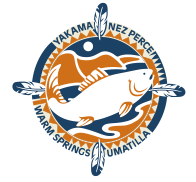Wy-Kan-Ush-Mi Wa-Kish-Wit: How Indigenous Knowledge Has Shaped Modern Fisheries Management in the Columbia River
Abstract
The Columbia River Inter-Tribal Fish Commission (CRITFC) was formed in 1977 to provide a unified voice in Columbia River fisheries management for the Nez Perce, Yakama, Umatilla, and Warm Springs tribes. Following extremely low returns of salmon in the early 1990s and regional inaction to reverse this trend, CRITFC and its four member tribes developed Wy-Kan-Ush-Mi Wa-Kish-Wit (Spirit of the Salmon), a 25year comprehensive fisheries restoration plan. This plan holistically addresses the ecological needs of anadromous fish species in the Columbia River basin by focusing on the full life cycle rather than a single life phase. A guiding principle of Wy-Kan-Ush-Mi Wa-Kish-Wit is to integrate traditional ecological knowledge with Western scientific principles to modernize and better inform fisheries management decisions and restoration goals within the Columbia River. Traditional ecological knowledge informs management and restoration decisions by 1) providing pre-European baselines of natural conditions, 2) providing a holistic and adaptive framework for the management of anadromous fish, and 3) recognizing the importance of place and its relationship to the human communities that depend on it. The tribes’ guiding principles from Wy-Kan-Ush-Mi Wa-Kish-Wit has helped halt salmon declines and reshape management within the Columbia River basin.
Authors
Citation
Penney, Z., P. Lumley, and A. DeCoteau. 2015. Wy-Kan-Ush-Mi Wa-Kish-Wit: how indigenous knowledge has shaped modern fisheries management in the Columbia River. American Fisheries Society Annual Conference August 16-20, 2015. Portland, OR.
